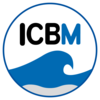Nicole Schwartz
Nicole Schwartz, PhD student
PhD Project
Why are aliens that successful?
Explaining the invasion success of sargassum muticum
Biotic invaders are species that establish a new area in which they proliferate, spread and persist to the detriment of the environment. Introduction of alien marine species by anthropogenic influences is one of the key presssures that threaten marine biodiversity and resources of the world's oceans. Macroalgae not only constitute a large component of the globally introduced biota, but also cause significant economic and environmental damage for which we have limited post-invasion control and management options. To enable a targeted monitoring and adaptive management the search for specific invasive characteristics of invaded ecosystems and invasive species is of increasing interest. The invasion success has been among others commonly related to an effective enemy defense, which provides the introduces species with a competitive advantage. Furthermore, recent studies highlighted the linkage between the success of marine bioinvasion and the establishment of chemical defense by introduced organisms.
The aim of my thesis was to investigate two main aspects of the invasion process: (1) determination of high-risk invasion source regions and invasive species through adapting and validatin a previously established colonization model and (2) identification of trits aiding the invasion process using the successful invasive brown alga S. muticum as a model organism.
Publications
- Seebens, H., Schwartz, N., Schupp, P.J., Blasius, B. (2016) Predicting the spread of marine species introduced by global shipping. PNAS
- Schwartz, N., Dobretsov, S., Rohde, S., Schupp, P.J. (2016). Comparison of antifouling properties of native and invasive Sargassum species. Submitted to European Journal of Phycology.
- Schwartz, N., Rohde, S., Hiromori, S., Schupp, P.J. (2016) Understanding the invasion success of Sargassum muticum: Herbivore preferences for native and invasive Sargassum spp. Submitted to Marine Biology
- Schwartz, N., Rohde, S., Dobretsov, S., Hiromori, S., Schupp, P.J. Understanding Sargassum muticum invasive success: Comparing chemical fouling defense of native and invasive brown algae. In preparation
Education
- PhD candidate, Carl von Ossieztky University and ICBM, Oldenburg. Environmental biochemistry working group (expected degree 03/2016, 11/2011-02/2016
- Graduate school, Carl von Ossietzky University and ICBM, Oldenburg “Science and Technology”, “Environmental Science and Biodiveristy” (expected degree 02/2016)
- Diploma Marine Biology, University Bremen
Title: “In-situ studies on plankton dynamics above coral reefs in the Spermonde Archipelago, South-Sulawesi, Indonesia“. Grade: 1.0, 03/2011 - Main studies biology, University of Bremen
Marine biology, ecology and geology 09/2006 - 03/2011 - Scientific diving education Carl von Ossietzky University and ICBM, Oldenburg, degree conferred at 10/2008, 11/2007 - 10/2008
RESEARCH Experiences
- Research fellow, Carl von Ossietzky University and ICBM, Oldenburg
PhD studies and teaching of scientific underwater techniques, 11/2011-02/2016 - Lab visit, Sultan Qaboos University, Muscat, Oman
Lab collaboration and antifouling experiments, 12/2012-03/2013 - Research assistant, Alfred Wegener Institute (AWI), Bremerhaven
Sample preparation, 12/2009-01/2011 - Diploma studies, Alauddin University, Makassar, Indonesia
Sampling and monitoring of plankton dynamics above coral reefs, 09-11/2009 - Research assistant, Max Planck Institute, Bremen
anaerob bacteria culturing, 05/2007-10/2009 - Students research project, AWI, Helgoland
investigating dominant predators in kelp forests, 10-12/2008
Field & teaching experiences
- Supervisor of scientific diving education, ICBM Oldenburg
Preparation and supervision of theoretical and practical courses, 11/2011-02/2016 - Supervisor, Core Sea, Koh Pagnan, Thailand
Organization and supervision of reef ecology excursion, 03/2015 - Project worker, Observatoire Océanologique de Banyuls, France, 07/2013
- Supervisor, Institute for marine biology, Giglio, Italy
Supervision of scientific diving excursion, 05/2013 - Alauddin University, Makassar, Indonesia
Sampling, monitoring and sample preparation for diploma thesis, 09-11/2009 - Students excursion, University of Cape Town, South Africa
Marine biology and fisheries biology, 02/2009 - Project worker, AWI, Helgoland
Several research projects, practical courses and sampling, 2004-2008
awards & honors
- "Research-orientated teaching" scholarship, 04-09/2015
- Confereence travel grants awarded by the Graduate School "Science and Technology" for the Marine Biotechnology Symposium in Muscat, Oman, 11/2013
- Short period-scholarship for PhD students awarded by the DAAD for a three-month lab visit of the Sultan Qaboos University, Muscat, Oman, 12/2012-03/2013
- "Research-orientated teaching" scholarship, 2011-2014
conference contributions
- Comparison of antifouling properties of native and invasive Sargassum species. "Youmares conference, Bremen, 09/2015
- "Why are aliens so successful?" Marine invasive Species Conference, Muscat, Oman. 02/2014
- "Antifouling activity of differenct Omani algae and bryozoan species." Marine Biotechnology Symposium, Muscat, Oman, 11/2013
- "Explaining invasive success" Youmares Conference, Oldenburg, September 2013
additional skills
- Languages: Native German, business fluent English, basic Spanish and Latin
- IT and Statistic: Strong computer skills including Microsoft package, PRIMER Statistics (Plymouth routines in Multivariate Ecological Research), SPSS (IBM Statistics, Illinois, USA), Mendeley, Graph Pad Prism, Illustrator, ImageJ. Basic knowledge in GIS and R
- Laboratory expertise:
Biology: Aquaria maintenance and animal keeping, Feeding and antifouling assays.
Chemistry: Extraction and extract fractionation,
Analytic: Chromatography (HPLC, GC/MS, LC)
Microbiology: Bacteria isolation, culturing and growth measurements; DNA extraction, PCR
Field: Underwater photography, monitoring, sampling - Certified scientific diver
- Driving license class B




